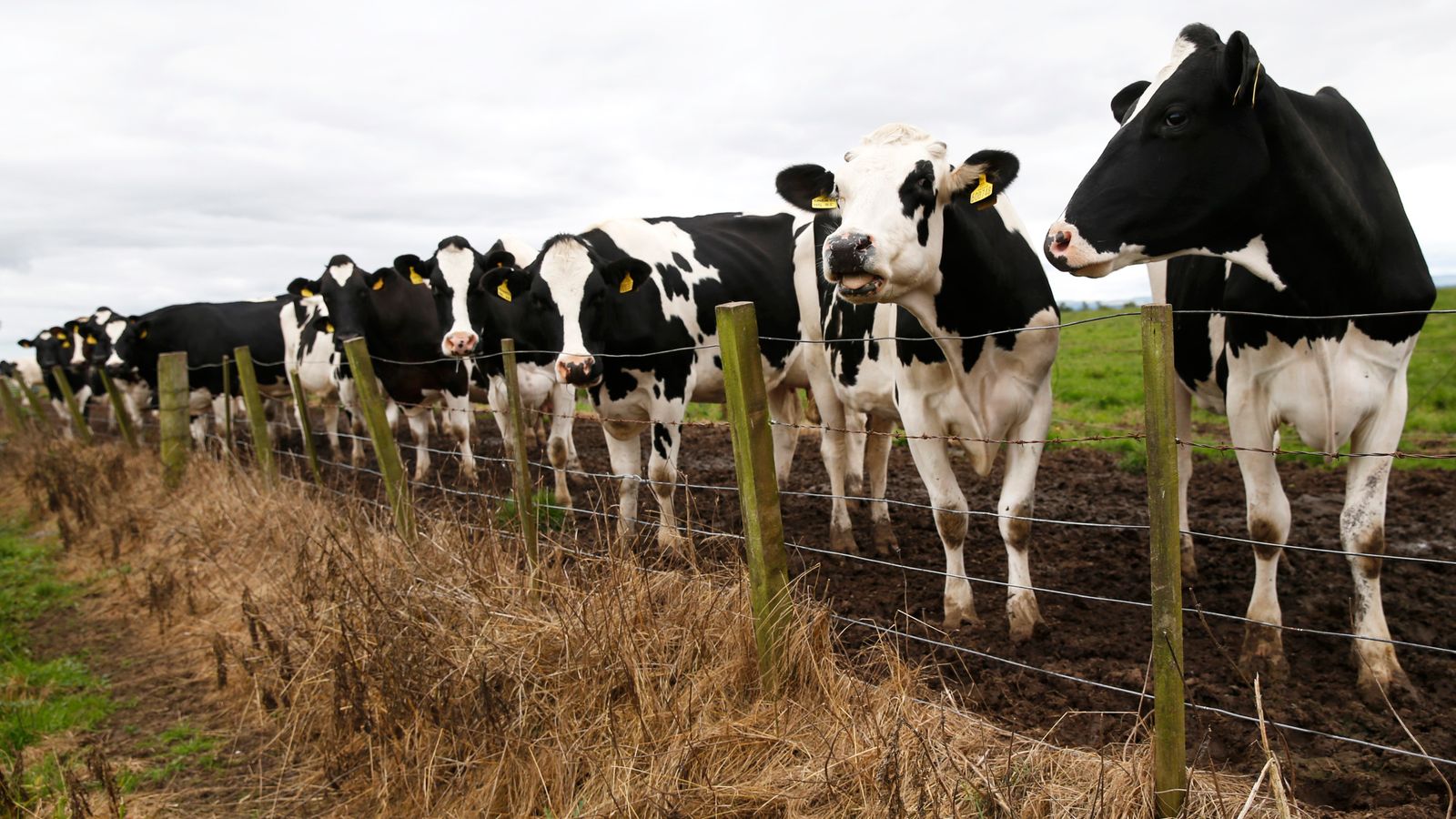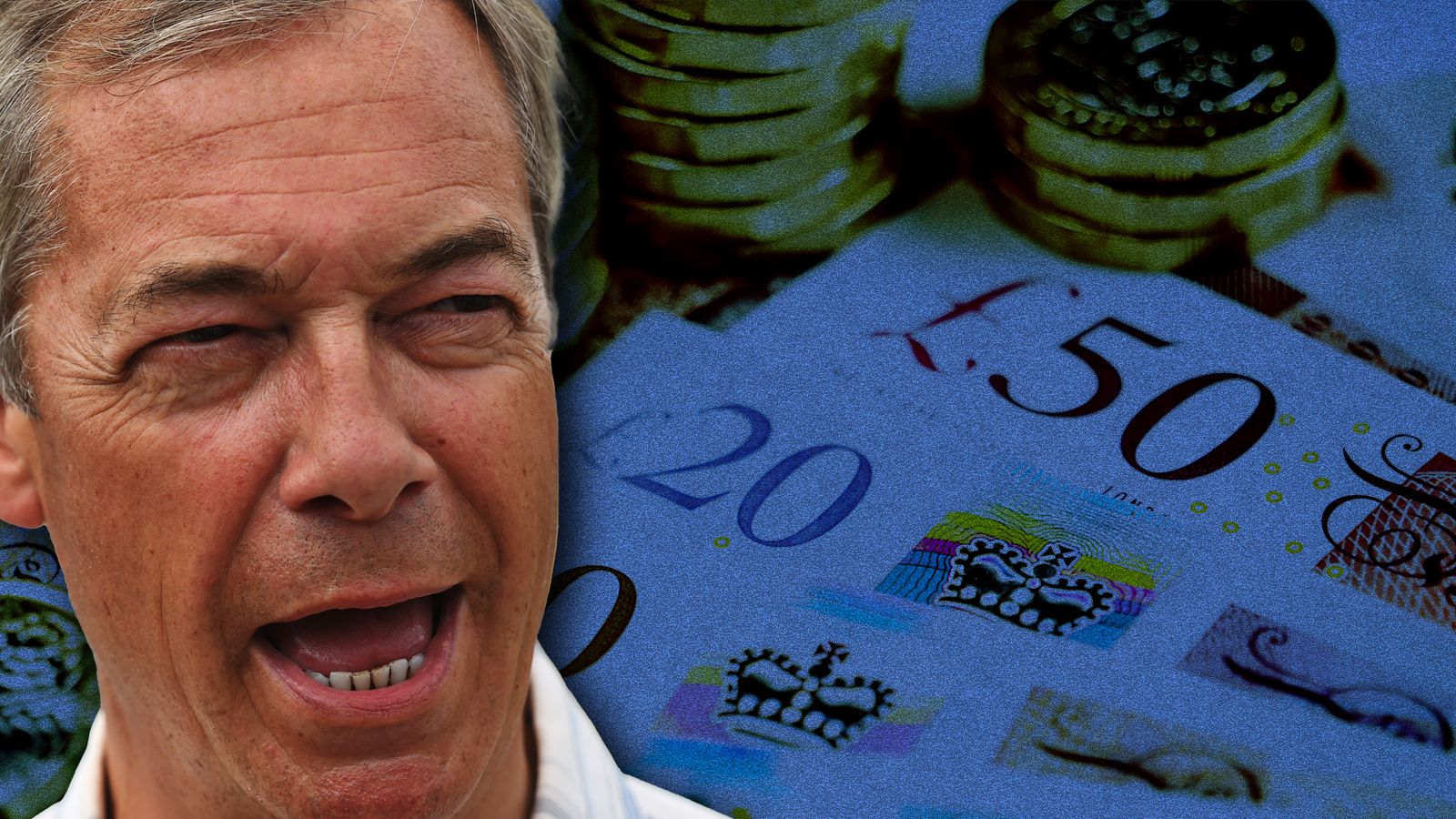Dairy cows could be fed methane suppressants as part of a plan to cut down on greenhouse gases from farming.
The government says it is planning to “encourage” the use of the suppressants – which can be made out of chemicals or natural ingredients such as seaweed – when they become available on the UK market.
Cows produce methane through digestion and release it mostly through “silent burping”, as well as farting.
Scientists say the world’s 1.5 billion cattle, each producing up to 500 litres of methane a day, are significant contributors to climate change.
The greenhouse gas has more than 80 times the warming power of carbon dioxide during its first 20 years in the atmosphere.
In the UK, methane makes up more than half of all greenhouse gases produced in agriculture, according to a 2019 study.
And the government believes methane suppressants – which are expected to enter the UK market in 2025 – could help meet the UK’s target to achieve net zero by 2050.
“Well-managed livestock can provide various environmental benefits and we plan to encourage the uptake of high efficacy methane suppressing products once they reach the UK market,” a government spokesperson said.
Click to subscribe to ClimateCast with Tom Heap wherever you get your podcasts
Tom Bradshaw, deputy president of the National Farmers’ Union, told Sky News that the development of methane-suppressing products was “exciting” for the industry.
He said: “Everybody recognises the need to reduce climatic impact and this is something we are really interested in.
“This could be a really positive step for that.”
But Mr Bradshaw added there was some suggestion some suppressants could reduce the effectiveness of feeds and more research was still needed.
Farmers also face the additional cost of buying the suppressants – at a time when many are facing higher feed and fertiliser costs.
Mr Bradshaw suggested this could be counteracted with rewards and incentives from government for producers who reduce their emissions.
How would the methane suppressants work?
Cows and other hooved livestock, such as sheep and goats, produce methane while digesting grass and organic-based feeds.
Around 70% of all methane emissions from livestock come from this process, with the remaining 30% arising from the storage and application of manure.
But methane-suppressing products can cut back on the amount of methane that is produced from digestion by inhibiting or disrupting the enzymes which produce the gas.
The suppressants – which can come from chemicals or natural substances, including potentially seaweed and garlic – can be ground into feed and given to animals.
The government’s plan, which comes after it launched a call for evidence in August last year, is not the first aiming to reduce methane emissions from livestock.
Read more:
Burping cows ‘major factor’ in rising methane levels
Cattle may be bred to grow faster and eat less to cut methane
Be the first to get Breaking News
Install the Sky News app for free
New Zealand’s government unveiled plans in June to tax the burps from cow and sheep in a bid to tackle greenhouse gases.
Please use Chrome browser for a more accessible video player
And last year, a face mask for cows that neutralises methane in their belches won a design award from the then Prince Charles and designer Sir Jony Ive.





